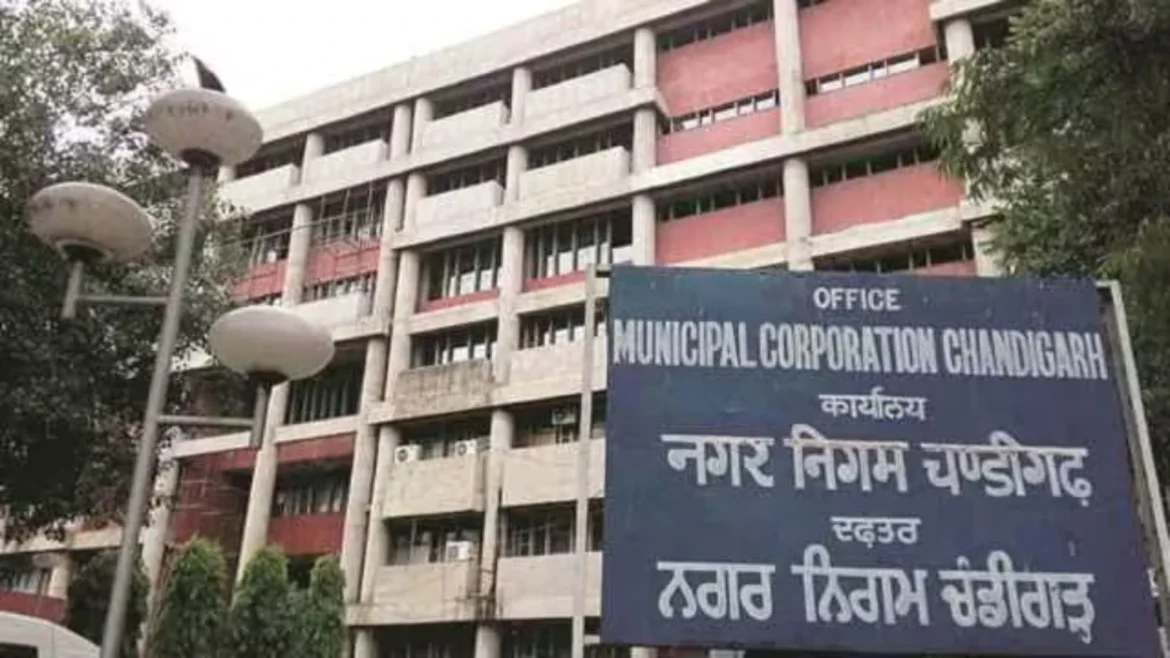CHANDIGARH, July 16 — With over 1 lakh metric tonnes of unprocessed waste still piled at the Dadumajra dumping ground and the July 31 deadline nearing, the Municipal Corporation (MC) Chandigarh on Tuesday issued stern warnings to all three firms tasked with clearing the legacy and fresh waste, citing their collective performance as “unsatisfactory.”
The warning follows a ₹35 lakh penalty imposed just two days ago on the same three agencies for failing to fulfill key contractual obligations, including essential infrastructure requirements.
“Your agency has failed to mobilise adequate resources or demonstrate any significant improvement,” read a notice issued by MC Commissioner Amit Kumar. “Progress has remained zero for the past 17 days despite repeated reminders.”
The three contractors—private firm M/s Aakanksha Enterprises and two public sector undertakings (PSUs), M/s Braithwaite Burn and Jessop Construction Limited and M/s Hindustan Steel Works Construction Limited—were given a joint deadline to complete the waste processing by the end of this month. While Aakanksha was initially contracted for legacy waste removal, its poor performance prompted the MC to bring in the two PSUs in February 2025.
But instead of accelerating, the progress has stagnated.
Officials disclosed that Chandigarh is dealing with three “mountains” of legacy waste: the first two, with 5 lakh and 8 lakh metric tonnes respectively, have seen partial progress. However, a third, newer heap—formed as recently as this year—now holds nearly 1.25 lakh metric tonnes, of which over 1 lakh MT remains untouched.
“Aakanksha’s output has been negligible. Their machines have been idle for days,” said a senior MC official. “Even the PSUs haven’t kept pace with their promised schedules. The situation is serious, especially given court monitoring.”
The project is under strict scrutiny by both the Punjab and Haryana High Court and the National Green Tribunal (NGT), raising stakes for the MC. The commissioner’s notice warned the contractors that penalties faced by the MC due to delays could be legally passed on to the non-performing agencies.
“If any penalty is imposed on the MC by a court of law due to poor performance on your end, it will be passed on to your agency,” the commissioner stated. “You are hereby directed to complete the work of processing legacy waste by July 31.”
The civic body also turned the lens inward, issuing show-cause notices to four of its own officials—the solid waste management (SWM) in-charge, nodal officer, and two executive engineers. In his communication, Chief Engineer Sanjay Arora cited their failure to supervise and implement the biomining operations effectively.
“There has been a continued failure in timely supervision and efficient execution of key SWM components under your respective jurisdictions,” Arora wrote. “This has resulted in non-compliance with directives issued by both the NGT and the High Court.”
He added that failure to submit a satisfactory explanation within the deadline “shall be construed as acceptance of the lapses,” and may trigger disciplinary proceedings.
Multiple operational failures continue to plague the Dadumajra site. The wet waste plant has consistently underperformed, while the dry waste processing units are failing to keep up with incoming volumes. Officials confirmed that upgrades to the leachate treatment plant are pending, despite being required under environmental norms.
Additionally, the site lacks basic infrastructure for effective waste segregation, drainage, and leachate disposal—shortcomings that pose serious environmental risks. There has also been no concrete step taken to establish a lab for testing and monitoring inert waste, a requirement under solid waste management rules.
With the clock ticking toward the July 31 deadline, the mounting garbage, administrative inertia, and inadequate contractor response place the city at the edge of a civic and environmental embarrassment—one that may now have legal consequences.

